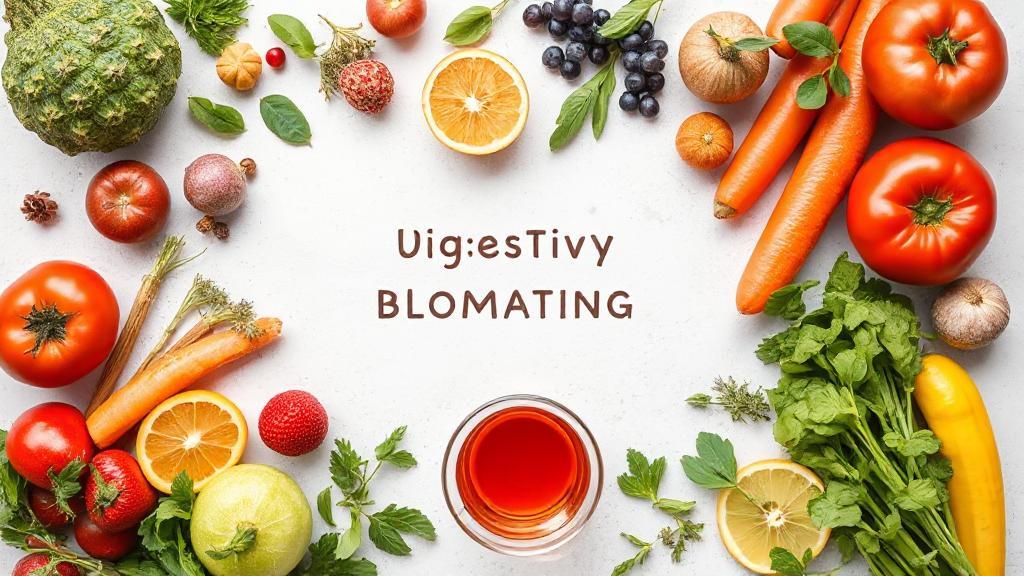Understanding Bloating and Digestive Discomfort
Bloating—a feeling of fullness, tightness, or swelling in the abdomen—is a common digestive complaint that can disrupt daily life. It often results from excess gas production, slow movement of the digestive tract, or imbalances in the gut microbiome. Poor digestion, meanwhile, can lead to nutrient malabsorption and further exacerbate bloating.
Common Causes of Bloating
Understanding the root causes of bloating is the first step toward relief. Some frequent culprits include:
- Overeating or eating too quickly
- Food intolerances (such as lactose or gluten)
- High intake of carbonated beverages
- Constipation
- Imbalances in gut bacteria
- Digestive disorders (e.g., IBS, SIBO, celiac disease)
- Hormonal fluctuations
- Swallowing excess air (aerophagia)
For a deeper dive into digestive health, see Effective ways to improve digestion naturally.
Dietary Adjustments for Reducing Bloating
1. Identify and Avoid Trigger Foods
Certain foods are more likely to cause bloating, especially in sensitive individuals. Common triggers include:
Keeping a food diary can help pinpoint personal triggers. Learn more about effective strategies to improve your gut health.
2. Eat Slowly and Mindfully
- Chew thoroughly to aid the breakdown of food.
- Put your fork down between bites to slow your pace.
- Avoid talking while eating to reduce swallowed air.
3. Embrace Probiotics and Prebiotics
A healthy gut microbiome is essential for optimal digestion. Probiotics—beneficial bacteria found in yogurt, kefir, sauerkraut, kimchi, and supplements—can help restore balance and reduce bloating. For more, see Top probiotics for improving gut health.
Prebiotics, found in foods like onions, garlic, leeks, asparagus, bananas, and whole grains, feed these beneficial bacteria.
4. Optimize Fiber Intake
Fiber supports regular bowel movements and prevents constipation. However, increase fiber gradually and drink plenty of water to avoid worsening gas and bloating. For more, check out Effective strategies to reduce your daily sugar intake.
5. Stay Hydrated
Adequate hydration helps move food through the digestive tract and prevents constipation. Aim for at least 8 cups (about 2 liters) of water daily.
Lifestyle Strategies for Digestive Harmony
1. Regular Physical Activity
Exercise stimulates intestinal contractions, helping to move gas and stool through the digestive tract. Even a short walk after meals can provide relief. For more on boosting your metabolism, see Effective ways to boost your metabolism naturally.
2. Manage Stress
Stress can disrupt digestion and exacerbate bloating. Techniques such as meditation, yoga, deep breathing, and engaging in hobbies can help. For quick relief, explore Effective ways to relieve stress quickly.
3. Prioritize Sleep
Poor sleep can disrupt digestive function. Aim for 7–9 hours of quality sleep per night.
4. Avoid Swallowing Excess Air
- Don’t chew gum or suck on hard candies.
- Avoid drinking through straws.
- Eat with your mouth closed.
- Ensure dentures fit properly if you wear them.
Natural Remedies and Supplements
Some natural remedies may help alleviate bloating and support digestion:
- Peppermint oil: Relaxes digestive muscles and may relieve IBS-related bloating.
- Ginger: Reduces inflammation and supports stomach emptying.
- Fennel seeds: Traditionally used to relieve gas.
- Chamomile tea: Soothes the digestive tract.
- Digestive enzymes: May help break down specific food components.
Always consult a healthcare provider before starting new supplements or herbal remedies. For more on safe detoxification, see Natural ways to detox your body safely and effectively.
Additional Tips for Digestive Wellness
- Eat smaller, more frequent meals to ease digestion.
- Avoid carbonated drinks and chewing gum to reduce swallowed air.
- Consider a low-FODMAP diet if you have IBS or persistent symptoms.
- Practice good posture during and after meals; see Effective strategies to improve your posture every day.
- Adopt a plant-based diet for its gut-friendly benefits; read Top benefits of adopting a plant-based diet.
When to Seek Medical Attention
While occasional bloating is normal, consult a healthcare provider if you experience:
- Persistent or severe bloating
- Unexplained weight loss
- Blood in stool
- Frequent diarrhea or constipation
- Severe abdominal pain
- Nausea or vomiting
These could indicate a more serious underlying condition.
Quick Reference Table
Final Thoughts
Reducing bloating and improving digestion often requires a multifaceted, personalized approach. By making mindful dietary choices, adopting healthy lifestyle habits, managing stress, and listening to your body, you can take significant steps toward a more comfortable and well-functioning digestive system. If symptoms persist, consult a healthcare professional for tailored advice.
For more comprehensive guides, explore:
